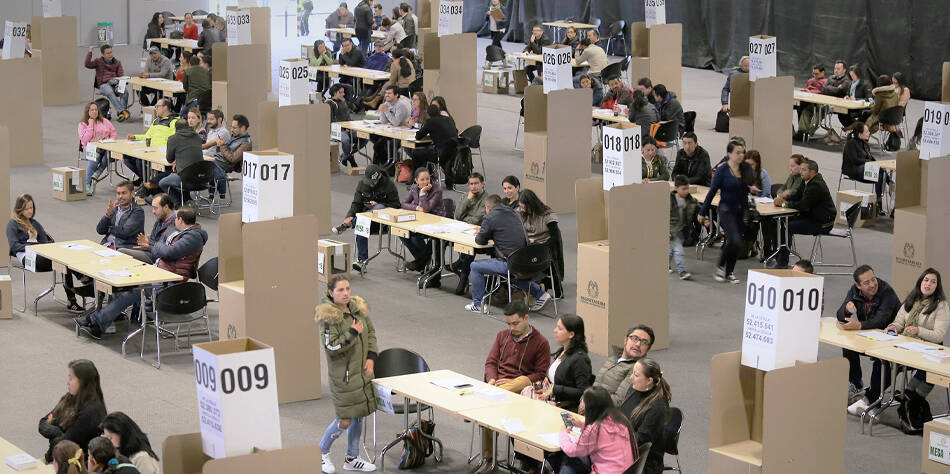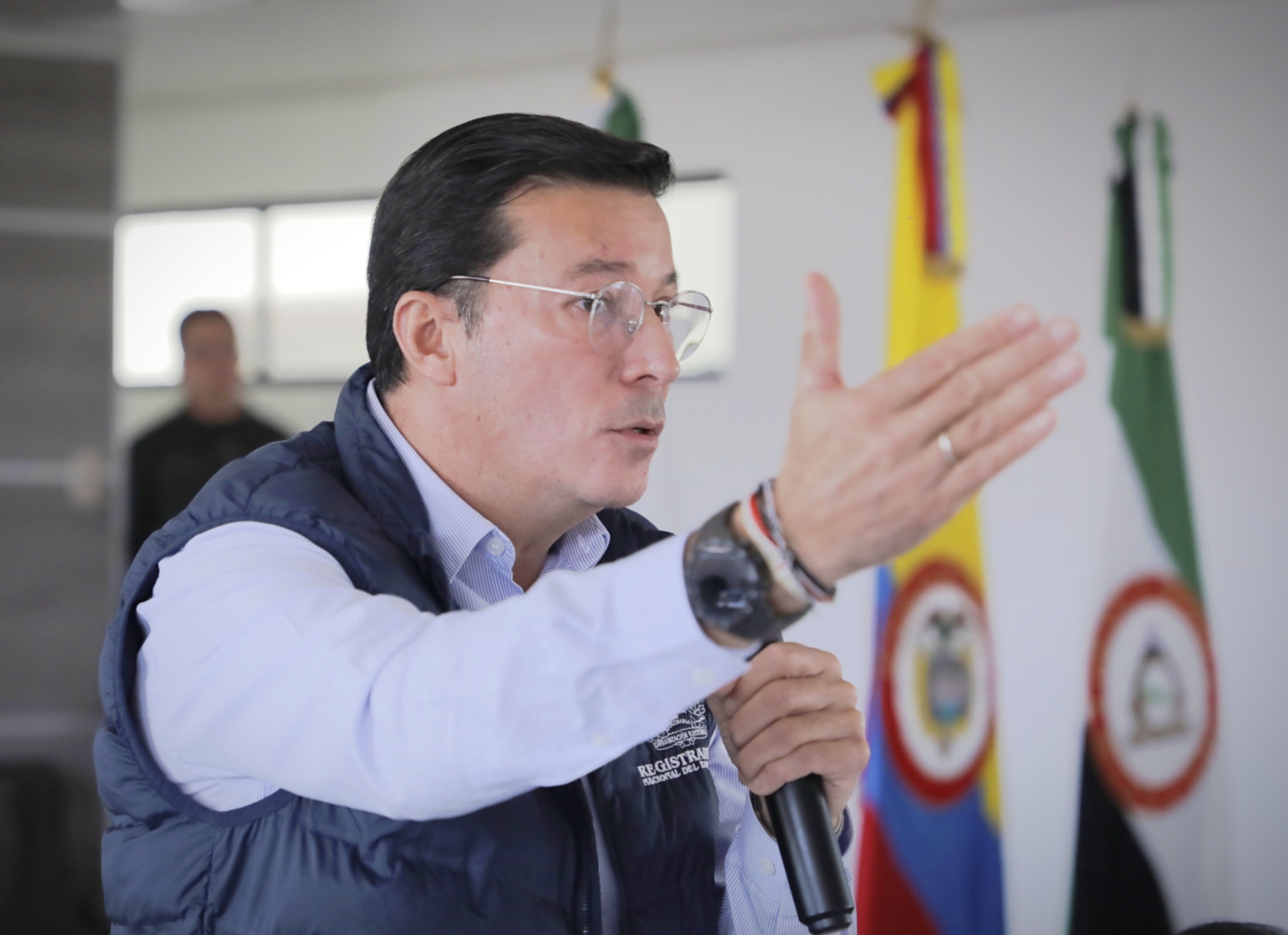Vélez in the morning | National Registrar spoke about the 2026 presidential elections

Hernán Penagos, National Registrar, spoke about the upcoming presidential elections and the uncertainty surrounding this important democratic issue.
The official said in an interview on the Vélez por la mañana program that Colombia will indeed hold elections next year, as stipulated in the country's Political Constitution.

Colombia's presidential elections will be held in 2026. Photo: iStock
"Colombia is a democratic state and democratic states comply with the Constitution and the laws." Therefore, in 2026, " a new congress and a new president of the Republic will be elected ," the politician said.
In 2026, a new congress and a new president of the Republic will be elected.
Hernán Penagos said he is "relaxed" with the budget issue. The official gave a calming report and pointed out that " the general budget contains the resources for the logistical process that the registry must carry out ."
He added that at this time, the entity is "processing what is known as the preliminary concept and future validity."
These are the resources that have to do with the 2025 and 2026 budget. "I see no reason, no reason at all, why these resources will not reach the registry," he said in the interview.

The official gives a reassuring report on the 2026 elections. Photo: iStock
However, the politician indicated that what worries him most is security around the elections. In fact, he said that he has spoken with the Ministry of Defense to "evaluate the risk maps and strategies to guarantee people's right to vote in 2026."
The concern is due to the various humanitarian crises that are occurring within the country and he said that insecurity would be reflected in the interference of illegal groups threatening the population, forcing them to make a specific decision, prohibiting them from going out to vote or not allowing electoral material to enter certain places.
The registrar assured that " it is not only about guaranteeing the right to vote, but also about guaranteeing the right to a free vote ."
It is not only about guaranteeing the right to vote, but also about guaranteeing the right to a free vote.
In response to the doubts that exist regarding logistics providers in the presidential elections, Hernán Penagos pointed out that after carrying out the study of the resources, a public call will be held.
The official explained that "any national or foreign company can participate in this public tender, none of them have a veto and much less can the registry exercise any veto, among other reasons, because that is how it is defined by Law 80, the contractual law in Colombia."

The National Registry will be in charge of voting. Photo:
He added that after this process, the company that "has the best conditions and has the best experiences" will be hired.
The official explained that these selected companies must be experts in the subject, since the elections in Colombia are the third largest in Latin America, after Brazil and Mexico.
What will happen with electronic voting? Penagos spoke about electronic voting and said that it has not been implemented in Colombia for several reasons: the first is the high costs and the second is that there is no great national consensus.
"I am not going to be the registrar who is going to impose or force electronic voting in the country. First there has to be a great consensus (...) because just as it works efficiently in countries such as Brazil, there are other countries where there are many doubts about electronic voting such as in Venezuela," he explained.
He also pointed out that in countries such as Germany it was evident that many people were unable to familiarise themselves with the equipment and this prevented them from exercising their human rights.

Hernán Penagos spoke about electronic voting. Photo: Registry Office
"It is not so elementary to implement electronic voting in Colombia," he said.
The chances of impersonation in Colombia or of the dead voting will be almost zero"
On the other hand, the registrar said that facial biometric machines will be implemented in the next elections. "We will reach about 70 thousand tables, that is, we will cover almost two thirds of the voting tables."
According to the official, this will make the " possibility of impersonation in Colombia or of dead people voting almost zero."
GERALDINE BAJONERO VASQUEZ
Journalist Latest News from EL TIEMPO
eltiempo






